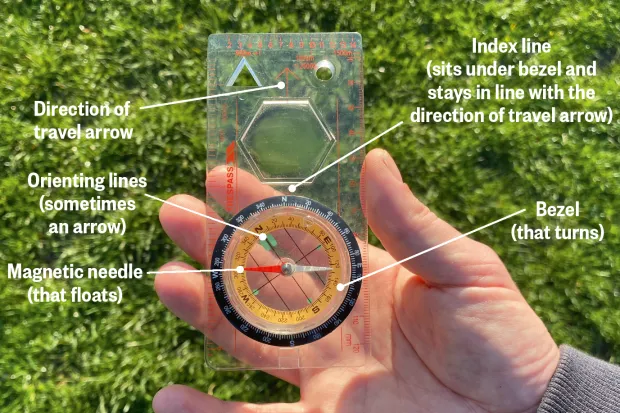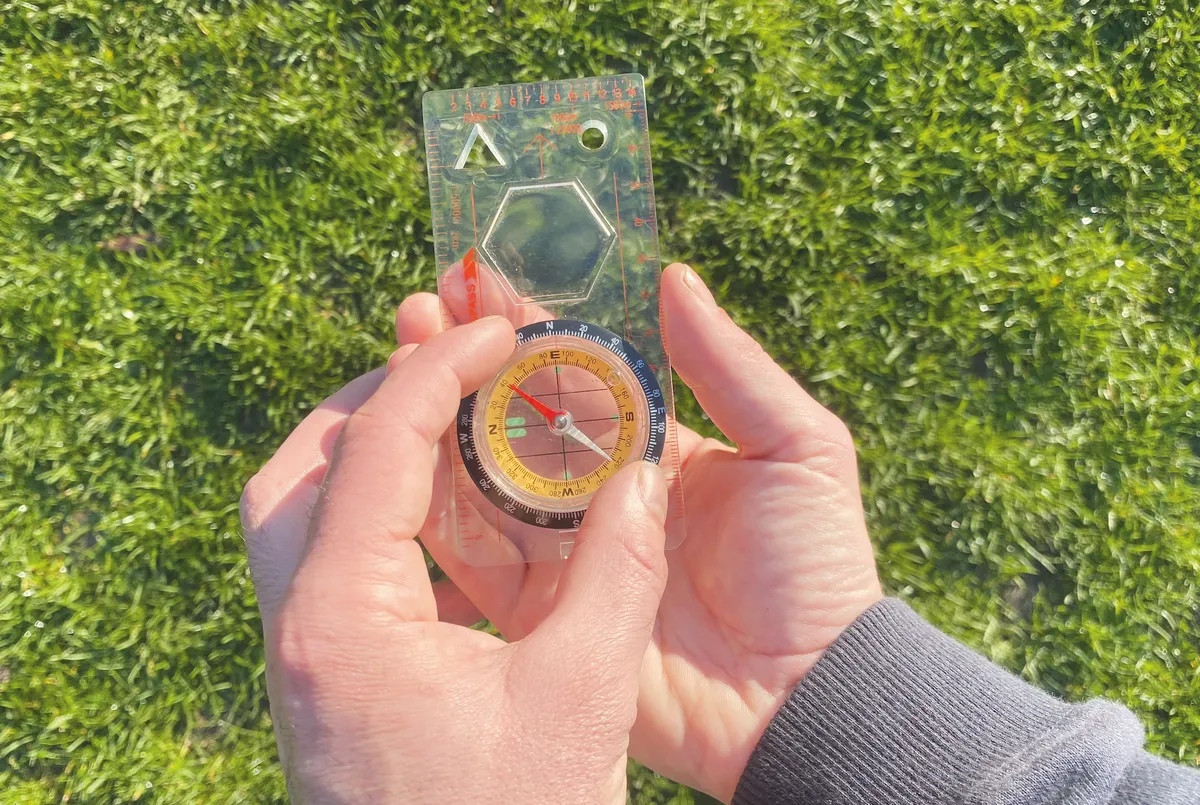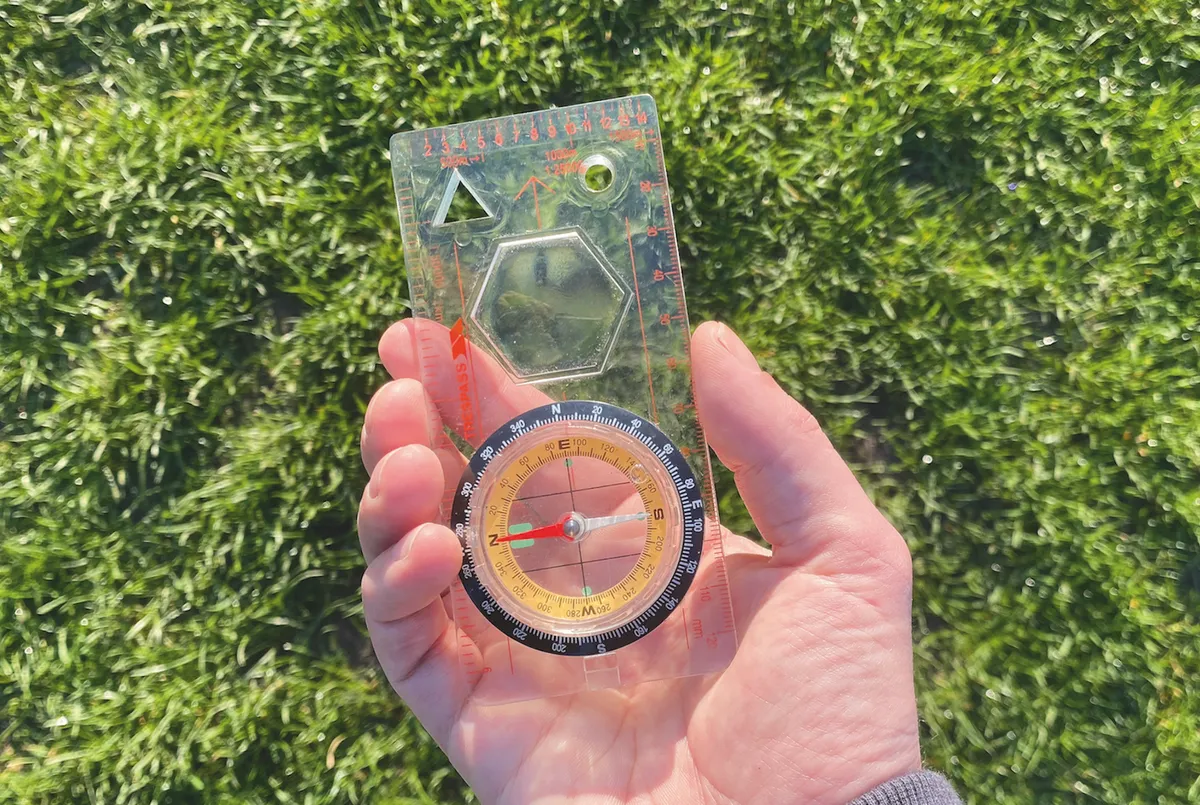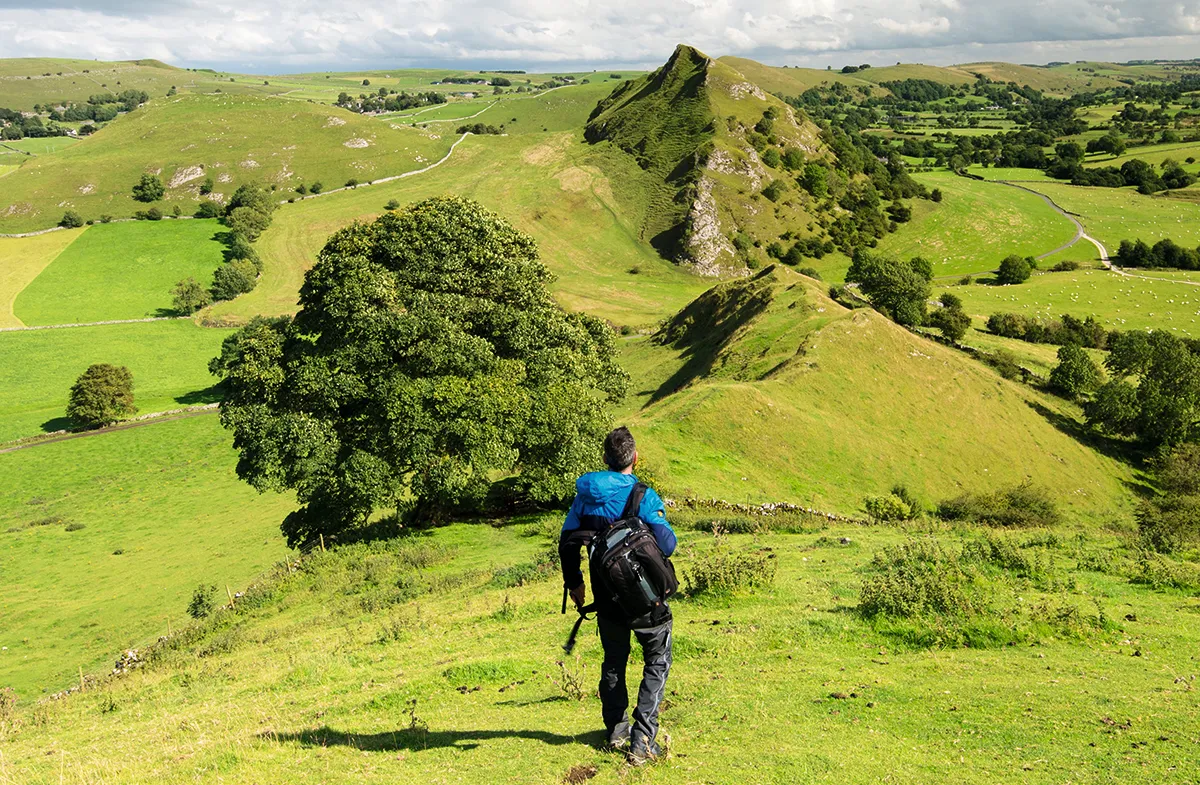Knowing the basics of how to use a compass is a valuable skill when out walking in the countryside, even if you usually use a mobile device to navigate.
Once you know that north is at the top of your map, you can work out the other directions. When you’ve done this, you can use your compass to help you face the way you want to go.
Whether you’re in the middle of nowhere or at a path junction, your compass can help you travel in the right direction.
In this step by step guide, we reveal the basics of compass reading.
Interested in learning more outdoor skills? Check out our guides to how to sharpen a knife, how to darn a sock and how to fix a zipper.
How to use a compass
1. Get to know your compass

If you're not used to using a compass, the symbols, numbers and letters may seem a little confusing. It's a good idea to get to know what each part of the compass means. In this diagram, we've pick out a few of the key parts, including the index line, bezel, magnetic needle, orienting lines or arrow, and the direction of travel arrow.
2. Turn the bezel

Turn the bezel of your compass so the direction you want to travel lines up with the index line. You can choose any direction but it’s easiest to start with the main cardinal points. For this demonstration we’ve chosen E for east (as seen in the yellow ring).
3. Orientate the magnetic needle

Holding the compass perpendicular to your body and flat in front of you, turn your body until the red end of the floating magnetic needle is inside the orienting lines (or arrow). You’re now facing east.
4. Walk the way you want to go

Once you’re facing the right direction, you can start walking.
If you keep the magnetic arrow inside the orienting lines as you go, you’ll be walking a straight line. But looking at the compass all the time isn’t practical. Instead, pick an obvious point ahead of you in the direction your compass is telling you to go. Walk to that point then line your compass up again and pick the next point to walk to.
